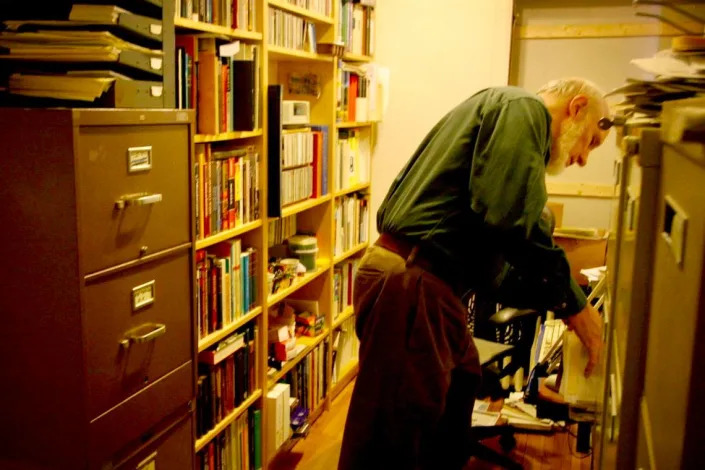Bud Kennedy
Tue, May 3, 2022, 3:45 PM·3 min read
It’s time to talk about what some folks would rather forget.
The sign’s language was blunt. There was never any question about its message, or its target.
The first word was a racist slur.
Then: “Don’t Let the Sun Set on Your Head in This Town.”
Originally, the “sundown sign” went up at the train station. Then, it was moved to the middle of the main street.
It happened more than a century ago. In Texas.
De Leon, Texas.
It wasn’t the only sign like that in Texas. I’ve met people who claimed they personally saw signs in Bowie, Glen Rose and Grand Saline.
Don’t get me wrong. I’m not picking on Texas or even the South.
In a Web search, I found similar racist signs mentioned in towns in California, Washington, Nebraska and Indiana. One town in British Columbia even had a sign warning Chinese to stay out.
But we know for sure that De Leon, 95 miles southwest of Fort Worth, had one of those signs for years.

The late historian James W. Loewen, author of “Sundown Towns,’’ said he found evidence of more than 150 sundown signs in 31 states. He defined “sundown towns” as “towns that were all white on purpose.”
It went up more than a century ago, in 1886, in the bitter decade after Reconstruction.
That was so long ago that the nice folks in that quiet peanut farming town might rather forget it.
I happened to find it because two historians have written about it.
The De Leon sign is actually part of a more shameful story in 19th-century Texas.
White vigilantes threatened the Black residents of Comanche County and forced them to move out.
In the 1880s, Comanche County was a growing cattle and cotton market. The towns of Comanche, De Leon and Gustine and the surrounding county were home to 8,608 people, including 79 Black residents.
Those were troubled times in Texas, both for race relations and the justice system. According to The New Handbook of Texas, white lynch mobs had begun to undermine the entire justice system in 1885, abducting and killing 23 white men, 19 Black men and one white woman.
The next year, what became known as “the Comanche County exodus” began with the killing of a white woman, Sallie Stephens.
According to historian B.B. Lightfoot’s 1953 account in Southwestern Historical Quarterly, a Black suspect named Tom McNeal was lynched. After the sign went up at the De Leon train station, armed white vigilantes went door-to-door and told every Black resident to pack up and get out of Comanche County.
One by one, every Black family moved away, mostly to Waco or Dallas. They abandoned family homes, churches, farms and the land of lifelong memories.
By the 1890 census, the only Black residents were two orphaned children who lived with white families.
Later, the Texas Central Railroad asked to move the De Leon sign. The train porters were being threatened.
So it was moved to the town well in the middle of Texas Avenue between the peanut mill and a tractor dealer, according to an updated 1996 report in a local magazine, the Messenger.
The earlier account deadpanned: “Because it has no Negro population, Comanche County is one of the few places in the South that has no apparent race problem.”
Comanche County did not have one Black resident in 1940, according to the New Handbook. By 1970, the census counted two.
The 2000 census found 62 Black residents in Comanche County, still fewer than in 1880.
Neither report says when the De Leon sign was taken down.
I HAD NOT HEARD OF SUNDOWN TOWNS TILL WATCHING LOVECRAFT COUNTRY
.jpg)
No comments:
Post a Comment